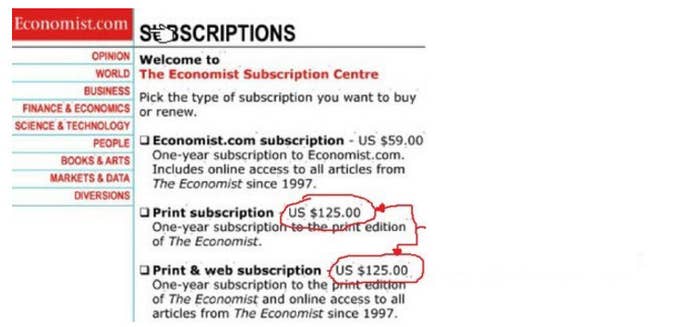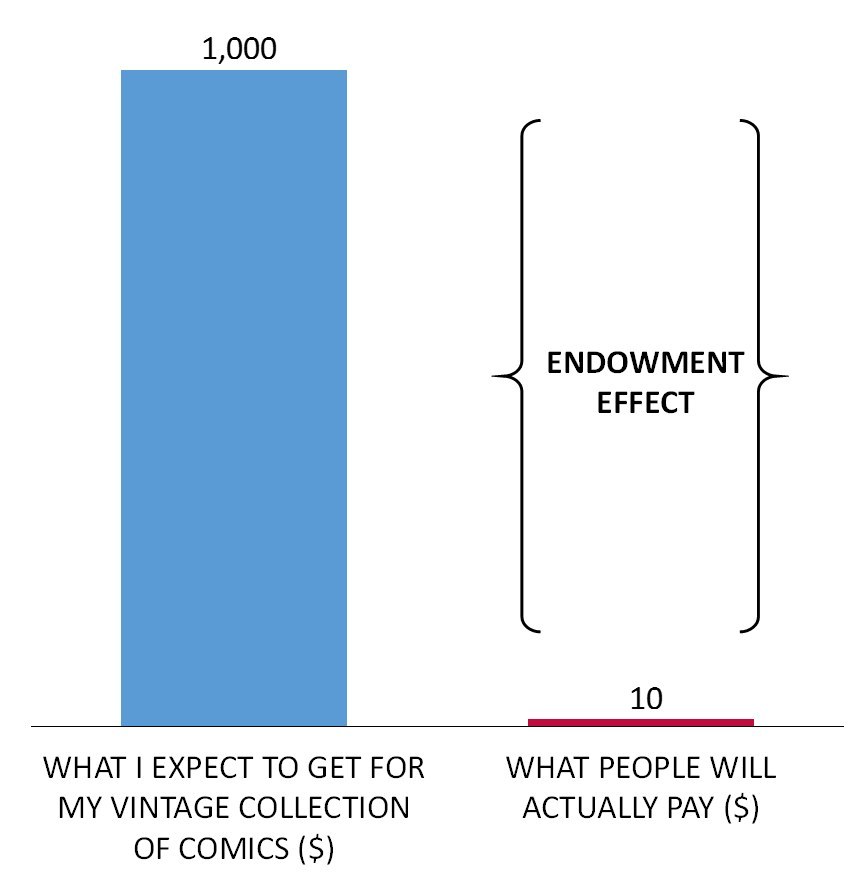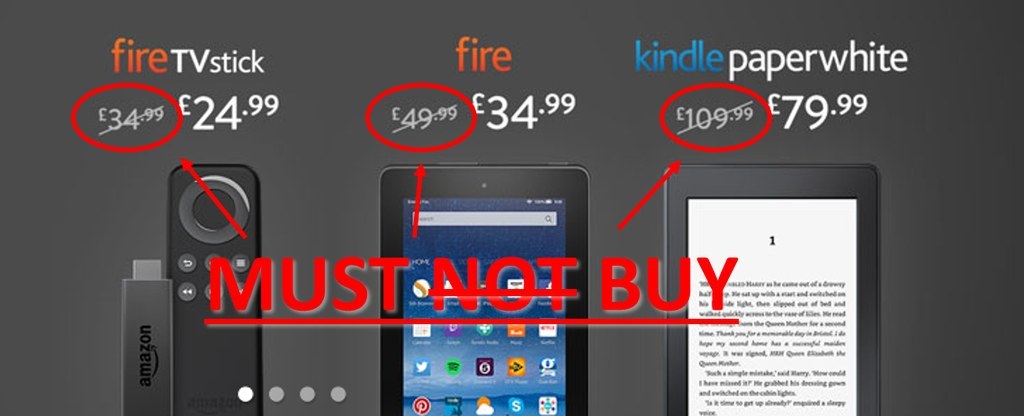Christmas is a time for family, friends and franticly running around stores doing last-minute shopping for presents.
Retailers know this and are very good at encouraging you to spend more while you're pulling your hair out, searching for a present for grandma. Plus, our brains are also pretty good at getting in the way of budgeting and good present buying.
Over recent decades the discipline known as "behavioral economics" has emerged to show the influence of emotions, social context and psychology on the way we make these decisions.
So to avoid stress and overspending these holidays, think about this...
1. Really terrible products are used as decoys.

People selling you stuff will put expensive and poor selling items right next to ones they wish to promote and actually sell heavily.
Why, you ask? Well we look at the closest comparison when deciding whether to buy. An expensive, inferior product next to your item is a decoy making you believe your choice is a bargain!! So beware and don't be tricked.
2. Your ego is a problem.
You know you see that Star Wars mug in the shops and you think, "Mum would LOVE this!" Are you sure, or do you just want it? It's called "egocentric bias". So just buy one for yourself.
3. Free gifts and trials will make you feel LOVE.

Once we own something, we tend to like it more. This is called the "endowment effect". For instance, say you are about to cancel your phone contract and the company tells you: "We have already credited your account with 10GB of free data —how could you use those?" Damn. I really want to keep that contract now.
4. Discounts DO NOT = bargain.

A reduced price does not make something a bargain. It does make it cheaper... but not a bargain. NOT A BARGAIN.
Watch out for retailers who discount almost everything, anchoring your price point on the former discounted price to make you think you're getting a steal.
This is obvious in online stores where prices can be updated easily. Instead, they programme a cross through the 'old' price to persuade you - BARGAIN.
5. Positive surprises make you forget all the bad times.
If an experience is positive at the end, your memory is heavily biased towards reflecting on it positively.
Daniel Kahneman, who won a Nobel Prize in Economics for his work on judgement, decision making and irrationality, calls this the conflict between our "experiencing selves" and our "remembering selves".
Stores know this. They'll add nice surprises at the appropriate moment - think cashiers telling you something has been magically reduced - to make you forget hours, and hours, of queuing.
6. *pssssst* bargains are on the lowest shelf.
This is obvious but people forget it: we are more likely to buy things stocked between eye-level and waist.
Retailers segment the market by placing more expensive things where we tend to look, leaving the awesome bargains to those bothered to search slightly harder. Always search the bottom shelves.
7. Beware of the "WOW!"
At Christmas people concentrate on a single feature or trying to get a ~moment~, outweighing the importance of other things. It's called "focusing illusion" and it means people often value making people say, "wow!" instead of thinking of practicality.
With the typical gift recipient valuing a gift 20% lower than its actual cost, try to visualise the person using the present throughout the year, rather than a one-off.
8. Yellow makes you happy.
When you're out shopping this Christmas season notice how many things are coloured yellow. It's the colour most linked to happiness - sunflowers, the sun and of course Big Bird. Sweet, soothing and designed to make you buy!
9. Finally, it's silly season.
Christmas is known as the "silly season" because it can sometimes feel like nothing makes sense. Buying sensibly and charitably while still having fun is always your best bet.
